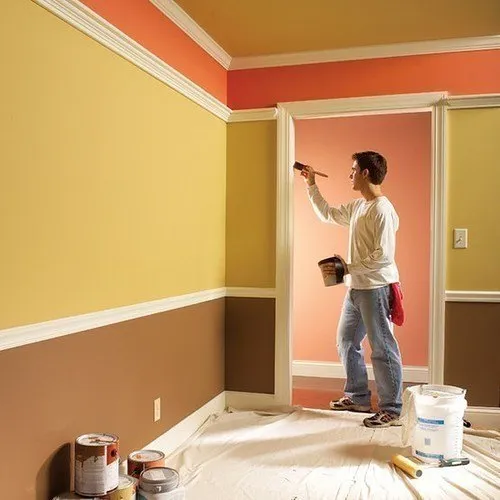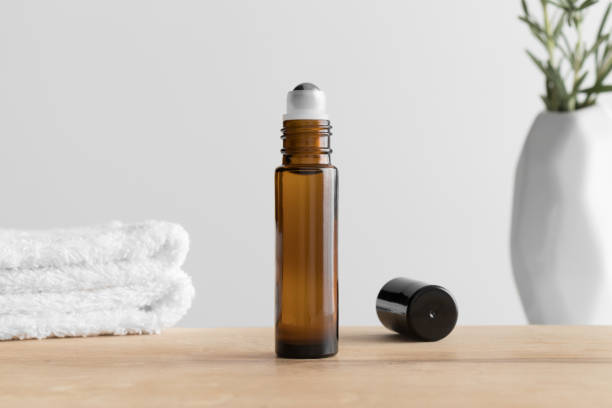When it comes to home maintenance, painting the walls is often an overlooked task. However, it is essential to keep your walls looking fresh and new to maintain the aesthetics of your home. But the question arises, how often should you paint your walls? In this article, we will discuss factors that affect the longevity of wall paint and provide tips on how often you should paint your walls.
Factors That Affect the Longevity of Wall Paint
The longevity of wall paint depends on several factors, including the type of paint, the surface, the environment, and the frequency of use. Let’s take a closer look at these factors:
- Type of Paint
The type of paint you use plays a significant role in determining how long it will last. There are two main types of paint: oil-based and water-based. Oil-based paints tend to last longer than water-based paints, but they are also harder to clean and less environmentally friendly. On the other hand, water-based paints are easy to clean and environmentally friendly, but they do not last as long as oil-based paints.
- Surface
The surface you are painting also affects the longevity of the paint. Different surfaces require different types of paint, and some surfaces are more prone to wear and tear than others. For example, high-traffic areas like hallways, kitchens, and bathrooms are more prone to wear and tear than low-traffic areas like bedrooms.
- Environment
The environment in which you live also affects the longevity of wall paint. If you live in a humid area, the paint may peel or fade faster due to moisture. If you live in an area with extreme temperatures, the paint may also deteriorate faster due to expansion and contraction.
- Frequency of Use
The frequency of use also affects how long your wall paint will last. If you have children or pets that are constantly touching or rubbing against the walls, the paint may wear off faster than if you live alone.
How Often Should You Paint Your Walls?
Now that we know the factors that affect the longevity of wall paint let’s discuss how often you should paint your walls.
- High-Traffic Areas
High-traffic areas like hallways, kitchens, and bathrooms should be repainted every two to three years. These areas are more prone to wear and tear and require more frequent touch-ups.
- Low-Traffic Areas
Low-traffic areas like bedrooms and living rooms can be repainted every four to five years. These areas are less prone to wear and tear, and the paint will last longer.
- Exterior Walls
Exterior walls should be repainted every five to seven years, depending on the type of paint and the environment. If you live in a humid area or an area with extreme temperatures, you may need to repaint your exterior walls more frequently.
- Professional Advice
If you are unsure about how often to paint your walls, it is best to consult a professional. A professional painter can assess the condition of your walls and provide recommendations based on the type of paint, surface, environment, and frequency of use.
Tips for Maintaining Your Wall Paint
To extend the life of your wall paint, here are some tips to keep in mind:
- Clean your walls regularly: Regular cleaning of your walls is essential to maintain the look and longevity of your wall paint. Use a soft cloth or sponge and mild soap to clean your walls. Avoid using abrasive cleaners, as they can damage the paint.
- Fix cracks and holes: Cracks and holes in the walls can cause the paint to peel or crack. To prevent this, fill in any cracks or holes before painting. Use spackling compound or joint compound to fill in the cracks and holes and sand them down before painting.
- Use touch-up paint: If you notice any scratches or scuff marks on your walls, use touch-up paint to cover them up. This will prevent the damage from spreading and maintain the overall look of your walls.
- Avoid direct sunlight: Direct sunlight can cause your paint to fade or peel. To prevent this, use curtains or blinds to block out the sun’s rays during the day. You can also use UV-resistant paint to protect your walls from sunlight damage.
- Don’t use harsh chemicals: Avoid using harsh chemicals like bleach or ammonia to clean your walls, as they can damage the paint. Instead, use a mild soap and water solution or a specialized cleaner designed for painted surfaces. Test any new cleaner on a small, inconspicuous area before using it on the entire wall.
In conclusion, painting your walls is an essential aspect of home maintenance. The longevity of your wall paint depends on various factors, including the type of paint, the surface, the environment, and the frequency of use. High-traffic areas like hallways, kitchens, and bathrooms require more frequent touch-ups than low-traffic areas like bedrooms and living rooms. Exterior walls should be repainted every five to seven years, depending on the type of paint and the environment. To maintain the look and longevity of your wall paint, it is essential to clean your walls regularly, fix any cracks or holes, use touch-up paint, avoid direct sunlight, and avoid using harsh chemicals. If you are unsure about how often to paint your walls, it is best to consult a professional. By following these tips, you can ensure that your wall paint lasts for years to come and enhances the aesthetics of your home.












